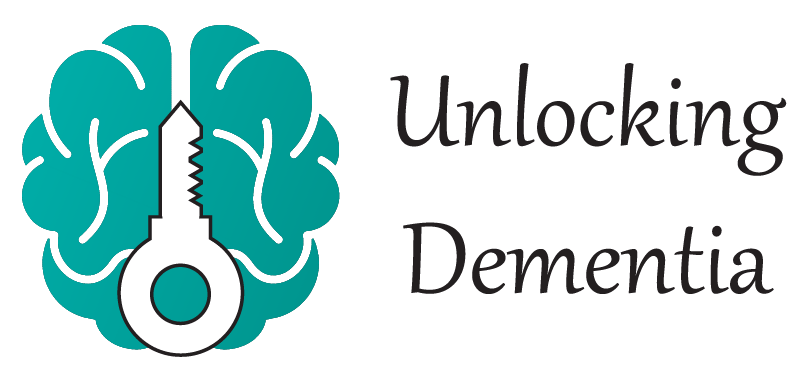When these skills are significantly impaired and a person is unable to live independently, dementia is often considered the cause. Because of the loss of the higher level of functionality, dementia often causes a person to leave a job or become unable to continue previously enjoyed activities.
Dementia is a term for a collection of symptoms of cognitive decline including disruptions in language, memory, attention, recognition, problem solving, and decision-making that interferes with daily activities. It is estimated that more than 5.8 million people in the U.S. have dementia and is not considered normal aging of the brain.
Dementia has many different faces, but the eventual outcome is the same. Cognitive abilities are lost, memories are lost, as are speech, especially word/item recognition and second languages, mobility and face or name recognition. Depending upon the type of dementia, mobility and dexterity are often affected as the patient declines. Often music and deeply ingrained activities such as tying a shoe, playing an instrument or singing a song are retained longer. Unexplainably, music and dance seem to trigger memories even in the most severely affected dementia patients. Over time, a person with dementia gradually loses his or her ability to live and function independently. Ultimately, the disease is fatal.
Dementia damaged areas of the brain include the hippocampus, which is an area of the brain that helps new memories form. This is often one of the early signs of dementia when short-term memory is impacted. Damage to the frontal lobe of the brain eventually causes problems with intelligence, judgment, and behavior. Changes to behavior and personality are often seen when the frontal lobes become impaired. Damage to the temporal lobe affects memory and often is seen as forgetting family memories or friends. Damage to the parietal lobe affects language and can revert the patient to not understanding language or unable to speak. Occasionally, in the early stages of parietal lobe damage, secondary languages are often lost, and the patient can only speak in their native tongue.
This loss is one of the tragedies of dementia. As a child, I was always in awe of my father’s ability to perform complex mathematical tasks as a mechanical engineer. After his diagnosis of Vascular Dementia, he was initially frustrated when he couldn’t even add up points in a simple game of gin rummy. As he continued to decline, he didn’t even know that he didn’t remember math.
One of the biggest mistake caregivers make with those living with dementia is assuming their loved one knew that information and can retrieve it with some hints or prodding. To a dementia damaged brain, that information was never there in the first place. It’s like trying to remember a story you have never heard. It just isn’t a memory anymore. There is no connection to that data and that section of the brain is no longer available or may no longer physically exist.
Our brain is a vast filing system that acknowledges everything we see, hear, smell, taste and feel. Depending upon the value of the information, those bits of data are stored in multiple places. Temporary memory is just that – temporary. Maybe it is a phone number you copy from the internet to make a reservation at a new restaurant, or the color or make of the car that passed in front of you at an intersection. This information is short-term and often is not retained or retained only for a very short time. The memory of a person you just met and need to remember or the route to work is considered long-term and is stored in a more permanent area of the brain. Usually our brain moves information to the appropriate filing cabinet when we sleep. Repetition also helps in moving short-term information to long-term storage.
Dementia breaks those connections. Although not fully understood, research in brains with dementia show pockets within the brain no longer contain brain matter. Once that section of the brain is gone, the information stored in that section is also lost. One of the common statements of a person living with dementia in the early stages will say things like “I didn’t know that.” or “You never told me that.” or accuse someone of lying
My husband, who suffers from Dementia with Lewy bodies, often accuses me of not keeping him informed of doctor appointments or our schedule. The information is on the wall calendar, in his phone, and on his computer calendar, but sometimes he doesn’t know to check those areas even when I tell him where the information is stored. He still knows what a calendar is, but he doesn’t always remember to look. That’s the difference between short-term (remembering to look) and long-term (recognizing the word calendar) memory.
The complexity of the human brain complicates recognition of dementia. One or two symptoms can be attributed to normal aging, but continual cognitive decline and loss of routine functionality like balancing the checkbook or daily hygiene are causes for intervention. The quicker the medical professionals are involved in the diagnosis and treatment, the easier the journey will be for all involved – patient, family and caregivers.
Dementia does not stall or slow down in its progress and denying its existence will not make it go away. My husband recognizes he has Dementia with Lewy bodies, however, in the next minute, he may deny he has dementia period. That could be his way to handle this disease while he can, or it may be part of cognitive decline. In any case, he is aware of his condition and suffers often in silence.
